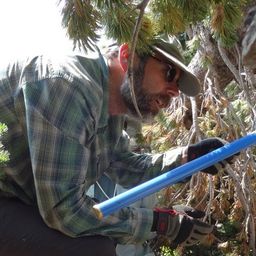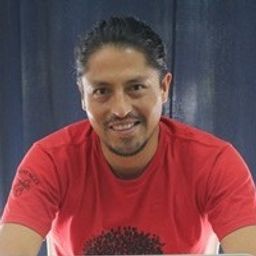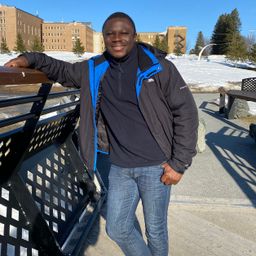General Session (Dendrogeochemistry)
My Session Status
Sub Sessions
The Pliocene is often identified as an example of a past warmer world. Studies of sub-fossil wood from fossil forest localities in the Canadian Arctic have allowed us to explore the amplified effects of global climate change in the Arctic during the Pliocene and to provide important information on how arctic ecosystems respond to these changes. Here we report new annually resolved climate records developed from Meighen and Prince Patrick Islands, which span a time period from 6.2 Ma to 2.7...
Chemical traits of tree-rings are sparsely used for dendroclimatic analysis. The difficulty of the laboratory process to obtain these proxies and understand their physiological relationship with meteorological variables have limited the development of dendrochemistry in tropical forests. Here, we show the first Micro X-ray fluorescence (µXRF) time series of chemical elements from Cedrela fissilis trees growing in southern Brazilian Amazon. We assess the relationships among wood traits (wid...
Global warming in boreal forests is more pronounced than elsewhere, as temperature is increasing twice as fast as the rest of the planet. Low water availability in some boreal forest stands is one of the numerous consequences of increasing temperature. Sites with coarse surficial deposits where water drains fast are more vulnerable to water stress, such as sites on esker fluvioglacial deposits. The eskers of the Abitibi region of Quebec (Canada) are valuable ecosystem for wood provision an...
The representation of snow processes in forest growth models is necessary to accurately predict the hydrological cycle in boreal ecosystems and the isotopic signature of soil water extracted by trees, photosynthates and tree-ring cellulose. Yet, most process-based models do not include a snow module, consequently their simulations may be biased in cold environments. Here, we modified the MAIDENiso model to incorporate a new snow module that simulates snow accumulation, melting and sublimat...
The ongoing North American megadrought has persisted since the year 2000, and has been characterized by anomalously low amounts of winter and summer precipitation. The climate systems providing these seasonal precipitation regimes are distinct in their origins but overlapping in their geographic ranges. However, our understanding is still incomplete in how alternation in water resources influences forest growth and physiology during extreme and persistent drought, including whether replete...
Dendroprovenance is a discipline usually linked to dendroacheology or wood commercialization; however, other purposes as inferring the origin of wood in rivers (i.e., instream large wood, LW) are often overlooked. LW in fluvial ecosystems enhances its geomorphology and biodiversity, but also increases potential risk during floods. Thus, knowledge about its source is crucial for understanding LW dynamics and optimizing river and riparian forest management. This project aims at deve...
Drought, flooding, and hurricane activity disrupt the human and natural landscape throughout the southeastern United States. Instrumental records through the past century suggest that the patterns of these extreme events are changing through time, especially in relation to rising global temperatures. However, instrumental records before the industrial revolution are rare, thus proxy records like tree rings are useful for comparing climatological conditions before massive human modification...








